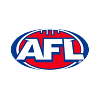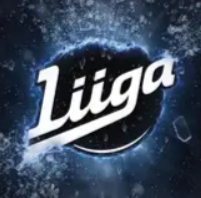You are using an out of date browser. It may not display this or other websites correctly.
You should upgrade or use an alternative browser.
You should upgrade or use an alternative browser.
More options
Edit prefixGman094
Registered User
There's no standard "if you skate for x amount of days then you will be a hockey player"
What people will tell you is to practice skating all the time. If your local rink has open ice go ahead and do that as much as possible. Don't worry about trying to skate with a stick at first either, most people recommend you don't start using a stick for quite some time. Also if you can take some sort of clinic/lessons, that will go a long way as well.
What people will tell you is to practice skating all the time. If your local rink has open ice go ahead and do that as much as possible. Don't worry about trying to skate with a stick at first either, most people recommend you don't start using a stick for quite some time. Also if you can take some sort of clinic/lessons, that will go a long way as well.
Bkennedy*
Guest
MrKabukiman
Ne pas plonger!
Also: I'm planning on playing goalie, if that helps.
Start with street hockey if you can. That will get you used to the angles, the equipment (street hockey gear is cheaper than ice hockey gear), and the pace of the game.
SkepticalDougO
Registered User
For skating- just go to public skate as much as you can to learn to skate, get comfortable on the ice.
I've seen some people go out there the first time and be pretty good skaters, it's just natural for them- other people take a long time. Go out, skate around, and don't be afraid to fall.
I've seen some people go out there the first time and be pretty good skaters, it's just natural for them- other people take a long time. Go out, skate around, and don't be afraid to fall.
Bkennedy*
Guest
Start with street hockey if you can. That will get you used to the angles, the equipment (street hockey gear is cheaper than ice hockey gear), and the pace of the game.
I don't know, street hockey just doesn't really appeal to me, unfortunately. I love something about the ice. I did play a bit of street hockey goalie, though. Just never really got the skating down.
As for the falling, etc. I'm more than willing to push through all of that.
Skraut
Registered User
Hey guys, I've been a hockey fan for quite a while now, and I'm moving to Dallas soon, where I'll be given the opportunity finally to try playing some.
Problem: I have never even ice skated in my life.
I'm 18 years old and am moving for college, I'm very interested in becoming dedicated/working as hard as I can to become the best I can.
My question: How long is about average to get ready to play? How long does it take to learn to skate with dedication, etc.?
Well you've got the advantage of youth

But I kept at it, progressing through the adult figure skating classes, and going to every open skate I could. I also am on a beginner's hockey team, as well as attend an adult hockey skills class that is held 3 times a week (depending on when my late games are I may get to 1 or 2 of them weekly)
Now, nearly 2 years later I consider myself "Competent" but still not good. Mentally that's still the hardest thing to come to grips with. I've been walking and running for 34 years, I should be able to skate as well as I walk
Some other thoughts: Being taught by a figure skating teacher had huge advantages and disadvantages. I really learned proper balance and specifically edgework. And getting on the outside edge edge is something I see that many of my beginner teammates struggle with. On the downside the hockey skills camp is still trying to drill out of me some of the "gracefullness" that I inherited from the figure skating teachers. I do big powerful crossevers, fine for a figure skater, or a speed skater, but when I get into them I'm going to continue on that curve. The short "choppy" crossovers that hockey players do allow them to change direction much quicker. The same goes for starts and stops. I have good top speed when I get there, but you can time my acceleration on a sundial.
Before I knew the hockey camp existed I went to every open skate I could. All ice time is valuable when you're still learning, but again it came with a little downside. In our area all open skates go counter clockwise. I can do crossovers to the left all day (because quite literally I have) but still haven't had nearly the practice I'd like with crossovers to the right.
Deciding to learn is still the best decision I ever made. I've lost quite a bit of weight because of it, and become a lot healthier. I also have done things I never expected like skate on the 1960 Olympic ice at Squaw Valley (see my avatar), play pond hockey, or play in a league with guys going though the same learning process I am. Grab ahold of the opportunity and enjoy it.
P.S. Pick up some 2nd hand hockey pads soon after you start. Who cares if you look weird at an open skate wearing some/full pads. Getting over the fear of falling lets you push your boundaries and learn that much quicker.
buffalosabresgal
Celebrates Festivus
As far as learning to skate, you just need to stick with it and get a feel for the ice, and your skates, for that matter. I myself learned to skate just this winter. I started off by borrowing a pair of my friend's figure skates - not supporive enough, my ankles kept going sideways (not fun). So, we moved on to hockey skates - which are much better for beginners like myself. It took me two days to get a feel for it and even then I fell countless times. But it was a great learning experience and I even started playing a bit of pond hockey. It just takes practice, and time, and a whole lot of effort.
VaxjoDevil
No kids - Still a person
I started skating three months ago, sticking to the boards at my first public skating. Since then, I practiced 3-5 times a week. I didn't take any classes, just watched a lot of youtube instructional videos. There are some really good ones (and some useless ones for sure too). When you go to public skating, always have a certain thing on your mind that you will practice. First, "walk" on the ice without cramping your feet. Then do the push-off, later you will do edges with different drills, etc. It won't do too much good to just go to a public skating and skate around without any plan.
I took my first hockey class this week and went to a stick session for the first time. I'm bad but getting better. Don't compare yourself with other guys flying around, just do your thing. At the stick time, I just found my own corner doing the drills from the class. Then a goalie trainer asked me if I wanted to do some rebound work with his goalie. I got so nervous but did alright, it was tons of fun.
I would say the most important thing is to not being bothered by that you look like a beginner. People around you don't care.
I took my first hockey class this week and went to a stick session for the first time. I'm bad but getting better. Don't compare yourself with other guys flying around, just do your thing. At the stick time, I just found my own corner doing the drills from the class. Then a goalie trainer asked me if I wanted to do some rebound work with his goalie. I got so nervous but did alright, it was tons of fun.
I would say the most important thing is to not being bothered by that you look like a beginner. People around you don't care.
Glen440
Registered User
I just took up hockey October 2010. I'm 33 and athletic. I started out by playing games with the guys from my work. I could skate but could not stop or skate backwards. I just finished 3 months of power skating and hockey skills classes. I can move to level 2 now. I'm finally at the stage where I'm comfortable skating with the puck.
I have played 29 games and had 11 lessons
Once its warmer I will get on roller blades and practice stick handling and find somewhere I can shoot pucks.
It takes some dedication and lots of practice but its worth it.
I have played 29 games and had 11 lessons
Once its warmer I will get on roller blades and practice stick handling and find somewhere I can shoot pucks.
It takes some dedication and lots of practice but its worth it.
DTrain009
Registered User
I started skating when I was 4 so it has really become second nature to me. but when I go skating in public I honestly think its great seeing adults learning how to skate. I wish more would learn because once you do it really is a lot of fun. I pretty much just need to repeat what other people have said already. learn to walk before you run, don't try and do a lap before you are comfortable. take the time to balance on your own. stay near the boards but don't touch the boards, use it as a safety net, there just in case. I know when your not going fast your feet can really cramp up, you will just have to tough that out in the beginning because it definately does go away over time.
beth
Registered User
Oh, you're so young, so you'll definitely have that working for you! I started really working on hockey skating in August 2010. Before that, I could skate forwards but not much else. When I started, I would try to get to the rink at least twice per week for a couple hours at a time. Once I got to be somewhat decent at skating, I started helping out my son's mite coach on the ice, and then eventually I was able to join the women's hockey league. I got to the point where I was on the ice for up to 10 hours a week(!) This really helped me progress, and so about 6 months from when I started, I got to where I could be really comfortable with backwards, crossovers, pivots, etc. Now I just need to work on speed and more agility. So hopefully that gives you some idea of the amount of work involved. If you're starting from scratch, don't expect too much out of yourself too soon. Give yourself at least a year if you can only get to the rink once or twice a week. Wear some gear so you won't be afraid to fall - you'll progress much quicker if you can push yourself without the fear of falling.
Good luck and JUST DO IT. You will love it.
Good luck and JUST DO IT. You will love it.
Anubis79
Registered User
- Jan 8, 2010
- 31
- 0
Since you're heading to college, see if they have a learn to skate class. It would be a good way to get regular ice time while also learning the basics. I know my university had one, but that was up North and they have an ice rink on campus. Just make sure it won't interfere with your required class load. I took a few phys ed courses for the easy A and because it kept me active and energized throughout the day.
Alternatively you could try and find some people on campus who already skate/play hockey and see if you can tag along with them and get some pointers. Don't try to learn a goalie skating style right away, get comfortable with the basics first.
Alternatively you could try and find some people on campus who already skate/play hockey and see if you can tag along with them and get some pointers. Don't try to learn a goalie skating style right away, get comfortable with the basics first.
macgyverthatshiz
Registered User
Hey man, welcome to the wonderful world of hockey. Like everyone else said, learn to skate before you attempt to use a stick and puck. Just hit up every public skate you can, usually there will be a bunch of people learning to skate too. I would recommend wearing elbow pads at public skate at the minimum, because it hurts like hell when you land on your elbows. Just take your time and do not attempt skills beyond your abilities, because you will get easily irritated. Good luck, you will have fun.
BladesofSTEELwFIRE
Registered User
- Feb 15, 2010
- 1,570
- 3
So for an athletic adult in good shape how long do you figure it takes to learn to skate around a rink on hockey skates comfortably? I just mean skating without a stick and puck.
BladesofSTEELwFIRE
Registered User
- Feb 15, 2010
- 1,570
- 3
M11
Registered User
- Jul 3, 2014
- 21
- 0
So for an athletic adult in good shape how long do you figure it takes to learn to skate around a rink on hockey skates comfortably? I just mean skating without a stick and puck.
If you are just skating around the rink it won't take long after 2-3 sessions of public skate you should be able to get around the rink without to much trouble. Mastering skating is like a 5+ year investment, at least that's what I've heard(I believe it).
The things that take time are the individual skills needed to excel at skating. In hockey you need to be able to stop, change direction, pivot, and be able to keep balance if you get pushed around. Each of these skills takes weeks of practice to learn and months to master.
To give you some perspective, I'm 24 years old and started skating last December. As of right now I can stop on my left side, forward cross over on both sides, and transition to backskate. I still can't cross over when going backwards, doing tight turns on my heels is still eluding me, and despite my constant skating I still have a lot of trouble balancing when someone gives me the slightest nudge.
That being said I still went out and joined a beginner league 5 months or so after I started skating. Hockey can help you improve your skating but it won't help you learn how to skate. My suggestion is to learn how to stop and crossover on both sides, and then join a beginner team. Keep on learning new skills and practicing balance. That's what I've been doing anyway.
BladesofSTEELwFIRE
Registered User
- Feb 15, 2010
- 1,570
- 3
Thanks buddy! Excellent answer! Exactly what I was looking for.
I was wondering how long it would take to learn to skate well enough to join an adult rec league so it looks like around 5 months or so right?
You shouldn't have to worry about anyone pushing you because all the adult hockey leagues I contacted are NO contact.
I was wondering how long it would take to learn to skate well enough to join an adult rec league so it looks like around 5 months or so right?
You shouldn't have to worry about anyone pushing you because all the adult hockey leagues I contacted are NO contact.
M11
Registered User
- Jul 3, 2014
- 21
- 0
Thanks buddy! Excellent answer! Exactly what I was looking for.
I was wondering how long it would take to learn to skate well enough to join an adult rec league so it looks like around 5 months or so right?
You shouldn't have to worry about anyone pushing you because all the adult hockey leagues I contacted are NO contact.
I started skating with a friend of mine and we both joined the summer league 5 months after starting. As long as you can stop and crossover you should be alright for a beginner league. Being able to transition to back skate will help a lot but you can just play a winger position if you still can't do that.
My friends and I joined the HNA league in our city which has been great. It's a no-checking league but there is still a lot of contact and some mild checking.
I don't know if you have gotten your skates yet but here's a tip I wish I would have known when I started.
Your skates are the most important piece of equipment you have. Budget 250-300 dollars for skates and NEVER buy cheap skates. Also go to a store and get fitted. Getting the wrong sized skate can and will ruin everything. When I started I got a used pair of skates 2 sizes to big. Those skates broke after my first hockey game. I went out got sized and bought 100 dollar pair of skates, after my third game they started to deform(I posted a thread about it a few months ago). Thankfully they were under warranty and CCM replaced my 100 dollar pair of skates with a 250 dollar pair. The difference is unbelievable, skating became a lot easier and a heck of a lot more comfortable.
Last edited:
WickedWinger
Registered User
- Aug 19, 2014
- 112
- 0
You shouldn't have to worry about anyone pushing you because all the adult hockey leagues I contacted are NO contact.
You will get pushed/bumped/checked, even in "no contact" leagues. You gotta figure if your a beginner skater just starting out in a league, there will be other beginners too. People will run into you by accident or completely on purpose. Not trying to scare you or anything, just want you to be prepared for it. The only advice I will add here is this: keep your head up. If you ever find yourself falling towards the boards and you know your gonna hit them, keep your head up. When you're skating down the ice with or without the puck, keep your head up. Make it a habit now and prevent injuries later.
BladesofSTEELwFIRE
Registered User
- Feb 15, 2010
- 1,570
- 3
Good advice guys. I talked to a guy who runs a rec league and he said it's no contact but I can understand on skates how you can slide into someone unintentionally.
He also said you don't need to know how to skate backwards to play but it helps!
He also said you don't need to know how to skate backwards to play but it helps!
Isles5513
Please don't lose
So for an athletic adult in good shape how long do you figure it takes to learn to skate around a rink on hockey skates comfortably? I just mean skating without a stick and puck.
Others have mentioned it before, but get good skates. You could have the best equipment and bad skates and it would make you worse.
Also, the most important thing for skating in general having your skates sharpened good by someone who knows what they're doing and has experience. If I had the choice between the best skates in the world with a crap sharpening job or the worst skates in the world with a great sharpening job, I'd go with the bad skates with good sharpening. Once you find a guy who sharpens your well and you like, keep him. You don't want some 19 year old kid at some hockey shop to sharpen your skates, unless you have gone to him before and know for sure that he is good at it and you like how he does it. Ask around and find a guy/place you like to have them sharpened. I don't know where you live, but if you live or work in NYC, there is a good place I like to go to.
BladesofSTEELwFIRE
Registered User
- Feb 15, 2010
- 1,570
- 3
snizzbone*
Guest
I've actually heard that buying really good skates with lots of support is bad for beginners as their ankles do not develop the proper muscles needed. I'd go with a mid-range skate at most as your first pair.
Ad
Upcoming events
-

-

-
 HC Dynamo Pardubice @ Ocelari Trinec - Pardubice leads series 3-2Wagers: 1Staked: $15.00Event closes
HC Dynamo Pardubice @ Ocelari Trinec - Pardubice leads series 3-2Wagers: 1Staked: $15.00Event closes- Updated:
-
 Tappara Tampere @ Pelicans Lahti - Tappara leads series 2-1Wagers: 1Staked: $15.00Event closes
Tappara Tampere @ Pelicans Lahti - Tappara leads series 2-1Wagers: 1Staked: $15.00Event closes- Updated:
-
 Eisbaren Berlin @ Pinguins Bremerhaven - Eisbaren Berlin leads series 3-1Wagers: 1Staked: $15.00Event closes
Eisbaren Berlin @ Pinguins Bremerhaven - Eisbaren Berlin leads series 3-1Wagers: 1Staked: $15.00Event closes- Updated:
